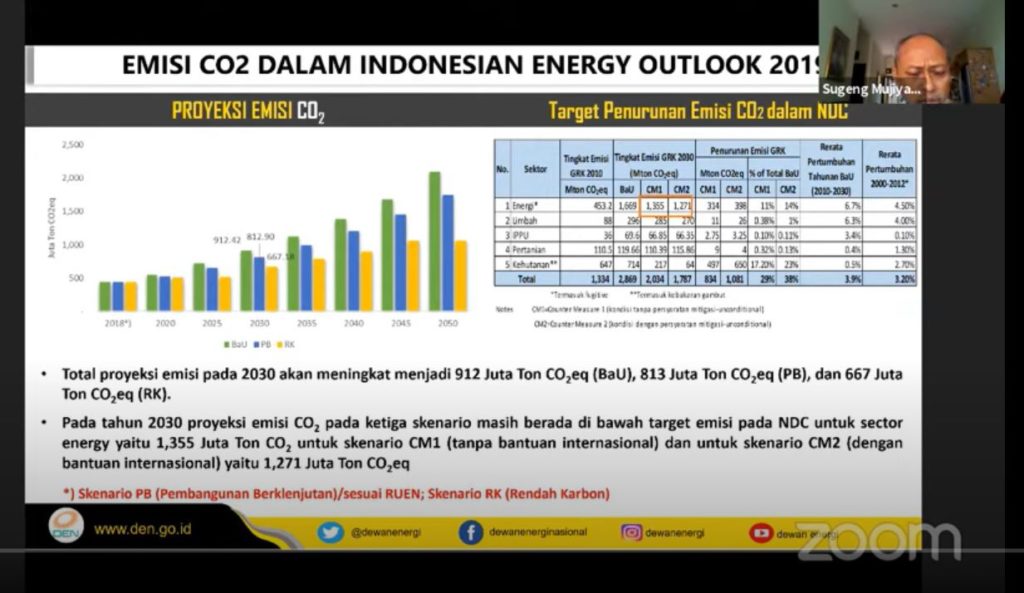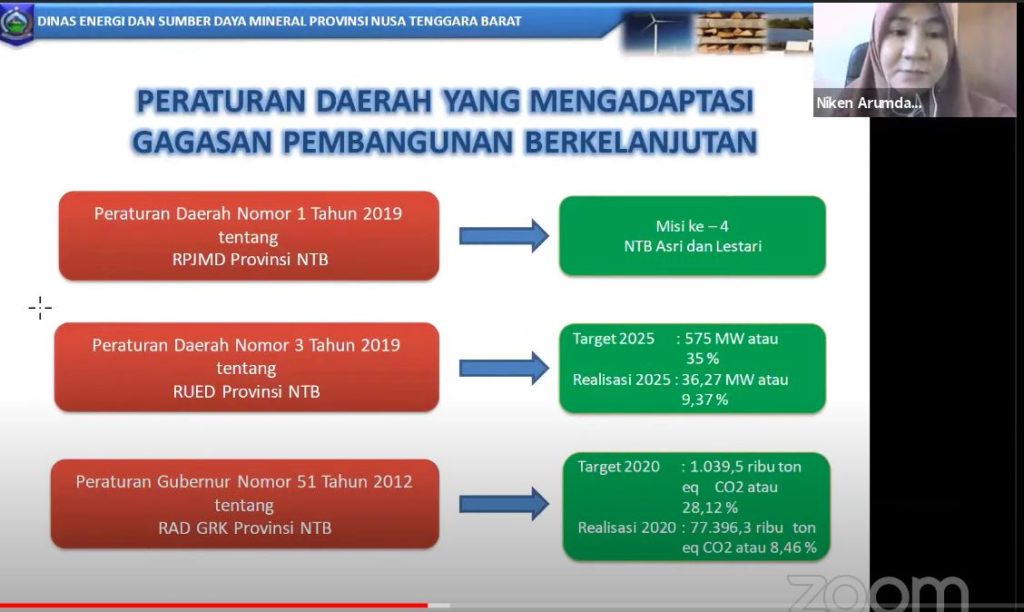ICLEI Indonesia and IESR discuss the role of energy planning in Indonesia
ICLEI Indonesia and IESR discuss the role of energy planning in Indonesia
The online discussion conducted by ICLEI and IESR converses about the critical role of energy planning at the national and regional levels especially National Energy Plan (RUEN) and Regional Energy Plan (RUED), to fulfill the climate change mitigation ambition. This ambition is directly contributing to Indonesia’s Nationally Determined Contribution (NDC) commitments.
Jakarta, Indonesia – ICLEI Indonesia and the Institute for Essential Services Reform (IESR) hosted an online discussion on 13 June 2020 to discuss the role of energy planning to achieve Indonesia’s Nationally Determined Contribution. Indonesia aims to reduce its greenhouse gas emissions by 41% by 2030 with international support.
Comprehensive Energy Policy Towards Climate Action
A comprehensive energy policy framework has an important role in targeting the reduction of GHG emissions. The Government of Indonesia has established a National Energy Policy (KEN) which was revealed in the National Energy Plan (RUEN), promulgated in Presidential Regulation No. 22/2017. The RUEN targets a renewable energy mix of at least 23% of the total primary energy production in 2025 and at least 31% in 2050.
To achieve these targets, the national government mandates each local government at the provincial level to prepare a Regional Energy Plan (RUED-P). A thorough energy planning in each region is required to claim Ms. Retno from the Institute of Technology Bandung. According to DEN, 16 of 34 Provinces already issued Regional Regulations (PERDA) regarding RUED-P as of April 2020, including West Nusa Tenggara (WNT) and East Nusa Tenggara (ENT) Provinces. Bali Province has not ratified the RUED yet. However, Bali has issued Governor Regulation No. 45 of 2019 concerning Bali Clean Energy said Mr. Ida Bagus from the Energy and Mineral Resources Agency (ESDM) of Bali.

Mr. Sugeng Mujiyanto from the National Energy Council explained the role of the energy sector in reducing CO2 emissions to meet the NDC target.
Ambitious Renewables Target
Bali sets out the target of renewables utilization of 11.5% in 2025 and 20% in 2050. Its neighbor, WNT Province, has a target of 49% in the electricity sector in 2050. This goal is stipulated under Regional Regulation No. 3 of 2019 on RUED-P. A detailed strategy and roadmap for RUED implementation are now being prepared, according to Ms. Niken from ESDM of WNT.
Mrs. Sherley from the Regional Development Planning Agency (BAPPEDA) of ENT said, “Despite having ambitious targets, many regions face challenges in developing renewables. The lack of consistency in energy planning followed by limited funding allocation is two of them. Additionally, the integration and collaboration between stakeholders from both national and regional levels are significantly needed to accelerate the development of renewables.”
To assist regions in developing renewable energy, ICLEI has a 100% Renewable Cities and Regions Roadmap initiative. Through this program, ICLEI will provide both technical and non-technical support to assist local governments in conducting tangible strategies to promote renewable energy.

Ms. Niken Arumdati as representative from Energy Agency of West Nusa Tenggara shared about synchronizing the energy planning in Regional Regulation.

